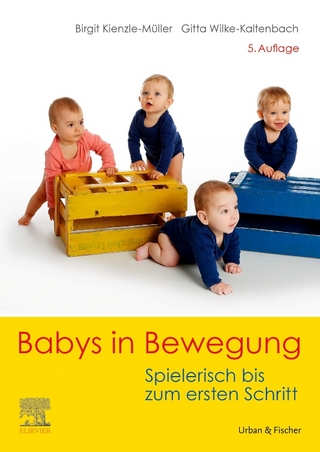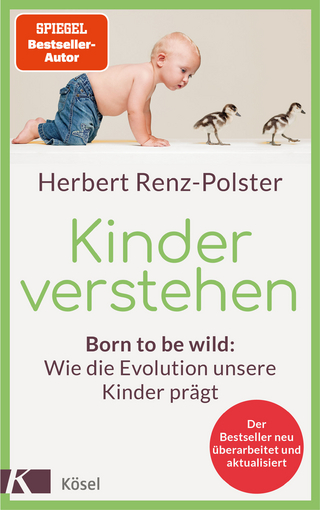
The Cambridge Handbook of Parenting
Cambridge University Press (Verlag)
978-1-108-83571-8 (ISBN)
Parenting is a critical influence on the development of children across the globe. This handbook brings together scholars with expertise on parenting science and interventions for a comprehensive review of current research. It begins with foundational theories and research topics, followed by sections on parenting children at different ages, factors that affect parenting such as parental mental health or socioeconomic status, and parenting children with different characteristics such as depressed and anxious children or youth who identify as LGBTQ. It concludes with a section on policy implications, as well as prevention and intervention programs that target parenting as a mechanism of change. Global perspectives and the cultural diversity of families are highlighted throughout. Offering in-depth analysis of key topics such as risky adolescent behavior, immigration policy, father engagement, family involvement in education, and balancing childcare and work, this is a vital resource for understanding the most effective policies to support parents in raising healthy children.
Amanda Sheffield Morris is Regents Professor and George Kaiser Family Foundation Chair in the Department of Psychology, Oklahoma State University, USA. She is co-author of Adverse and Protective Childhood Experiences: A Developmental Perspective (2020) and co-editor of Authoritative Parenting: Nurturance and Discipline for Optimal Child Development (2013). Julia Mendez Smith is Professor of Psychology at the University of North Carolina at Greensboro, USA. She is also a clinical-community psychologist and a licensed mental health professional in the state of North Carolina. She has published widely on childcare access, school readiness, and parent and family engagement, and she has worked in partnership with Head Start programs and local schools for over twenty years.
Part I. Foundations of Parenting: 1. Foundational theories and the establishment of parenting science research George W. Holden; 2. Parenting, Challenges, Brain development and attachment strategies Anne Rifkin-Graboi and Gwendolyn Ngoh; 3. Parenting and brain development Caitlin C. Turpyn and Eva H. Telzer; 4. Parenting and children's social and emotional development: Emotion socialization across childhood and adolescence Amanda Sheffield Morris, Lixian Cui, Jens E. Jespersen, Michael M. Criss, and Kelly T. Cosgrove; 5. Parenting and children's cognitive and language development Allyson Strmiska Masters, Kathy Hirsh-Pasek, Dani Levine, and Roberta Michnick Golinkoff; 6. Discipline and punishment in child development Jennifer E. Lansford; 7. Parenting from a cultural and global perspective: A Review of theoretical models and parenting research in diverse cultural contexts Qing Zhou and Sara Chung; Part II. Parenting Across Development: Social, Emotional and Cognitive Influences: 8. Bolstering the Bond: Policies and programs that support parenatal bonding and the transition to parenting Lara R. Robinson, Helena J. Hutchins, Rachel Hulkower, Kimberly Newsome, Angelika Hartl Claussen, Rebecca H. Bitsko, Russell McCord, and Jennifer W. Kaminski; 9. Parenting during infancy and early childhood Esther M. Leerkes, Stephanie H. Parade, and Marta Benito-Gomez; 10. Parenting that promotes positive Social, Emotional and Behavioral Development in Middle Childhood Liliana J. Lengua, Stephanie F. Thompson, and Michele R. Smith; 11. Parenting adolescents Laura M. Padilla-Walker, Meg O. Jankovich, and Daye Son; 12. Parenting during emerging adulthood Larry J. Nelson; Part III. Parental Factors that Impact Parenting: 13. Mental health and parenting Sandra T. Azar and Michelle F. Wright; 14. Ethnicity and race as a context for parenting: An examination of academic socialization, cultural socialization, and teachings about discrimination Diane L. Hughes and Trenel E. Francis; 15. The role of fathers in caregiving Natasha J. Cabrera, Yu Chen, Avery Hennigar, Angelica Alonso, and Rachel Ghosh; 16. Understanding parenting through a family systems lens Carolyn S. Henry; Part IV. Child Factors that Impact Parenting: 17. Parenting children with disabilities Keith Crnic and Laura Winstone; 18. Parenting children with externalizing behavior and ADHD George J. DuPaul, Alicia Chunta, and Jae Hyung Ahn; 19. Parenting in the context of child anxiety and depression Cynthia Suveg, Kara B. West, and Joanie Wilbanks; 20. Parenting LGBTQ children and adolescents W. Roger Mills-Koonce and Marisa E. Marraccini; 21. Parenting children with a history of adversity Jennifer Hays-Grudo, Erin L. Ratliff, and Amanda Sheffield Morris; Part V. Parent Education, Intervention and Policy: 22. Parent and family engagement in early education programs Julia Mendez Smith, Doré R. LaForett, Kaitlin Quick, and Rosario Villa; 23. Refugee policies and parenting in the United States and Germany Julian Busch and Hirokazu Yoshikawa; 24. Parents as earners: What parental work means for parenting and the role of public policy Lisa A. Gennetian and Anna Gassman-Pines; 25. Parenting of children involved in the child welfare system Brenda Jones Harden, Tanya Tavassolie, and Shivani Raina; 26. Technology and parenting: Challenges and opportunities Edward G. Feil; 27. Preventing risk behaviors in adolescence Elizabeth Stormshak, Alyssa Kennedy, Robyn E. Metcalfe, Jordan Matulis, and Yijun Cheng; Index.
| Erscheinungsdatum | 07.12.2022 |
|---|---|
| Reihe/Serie | Cambridge Handbooks in Psychology |
| Zusatzinfo | Worked examples or Exercises |
| Verlagsort | Cambridge |
| Sprache | englisch |
| Maße | 175 x 250 mm |
| Gewicht | 1320 g |
| Themenwelt | Sachbuch/Ratgeber ► Gesundheit / Leben / Psychologie ► Familie / Erziehung |
| Geisteswissenschaften ► Psychologie ► Entwicklungspsychologie | |
| Geisteswissenschaften ► Psychologie ► Familien- / Systemische Therapie | |
| ISBN-10 | 1-108-83571-6 / 1108835716 |
| ISBN-13 | 978-1-108-83571-8 / 9781108835718 |
| Zustand | Neuware |
| Informationen gemäß Produktsicherheitsverordnung (GPSR) | |
| Haben Sie eine Frage zum Produkt? |
aus dem Bereich


